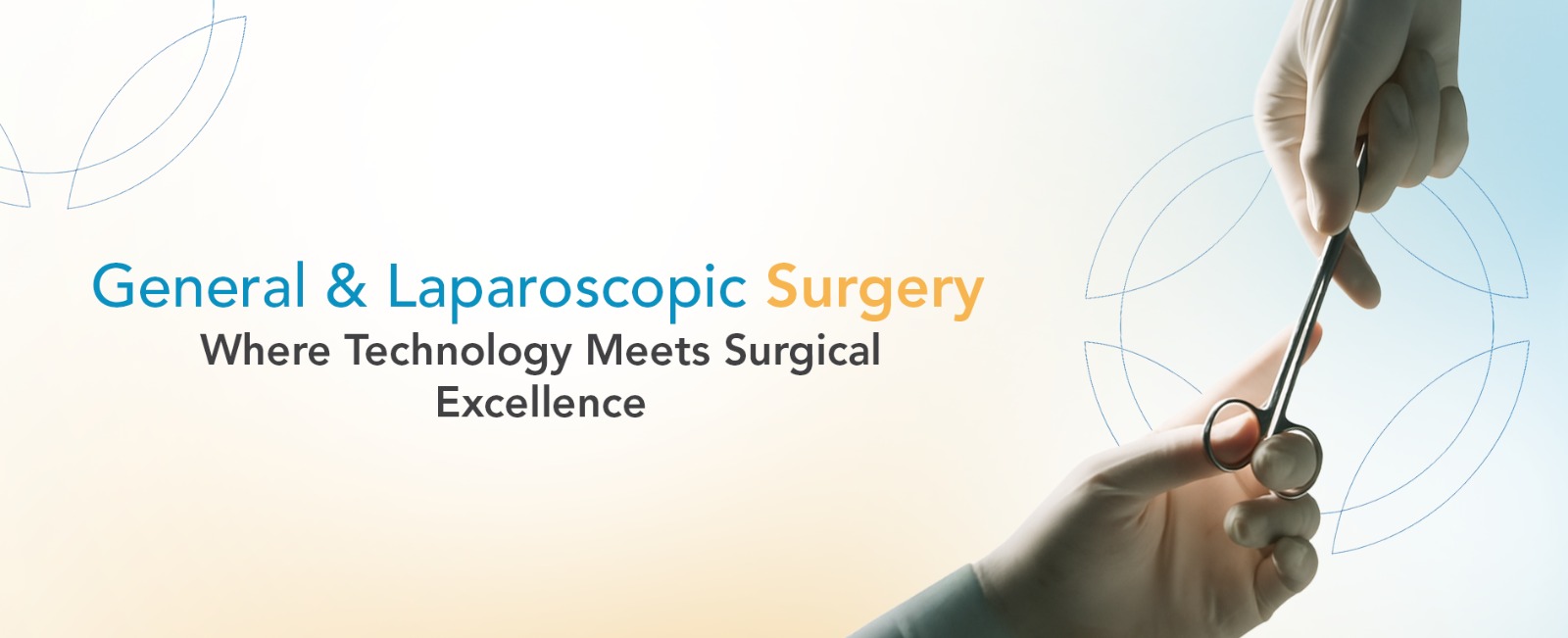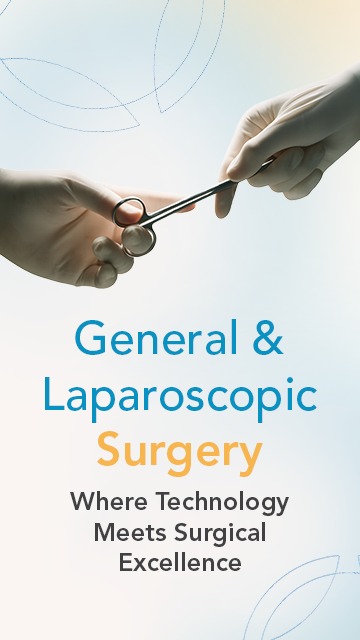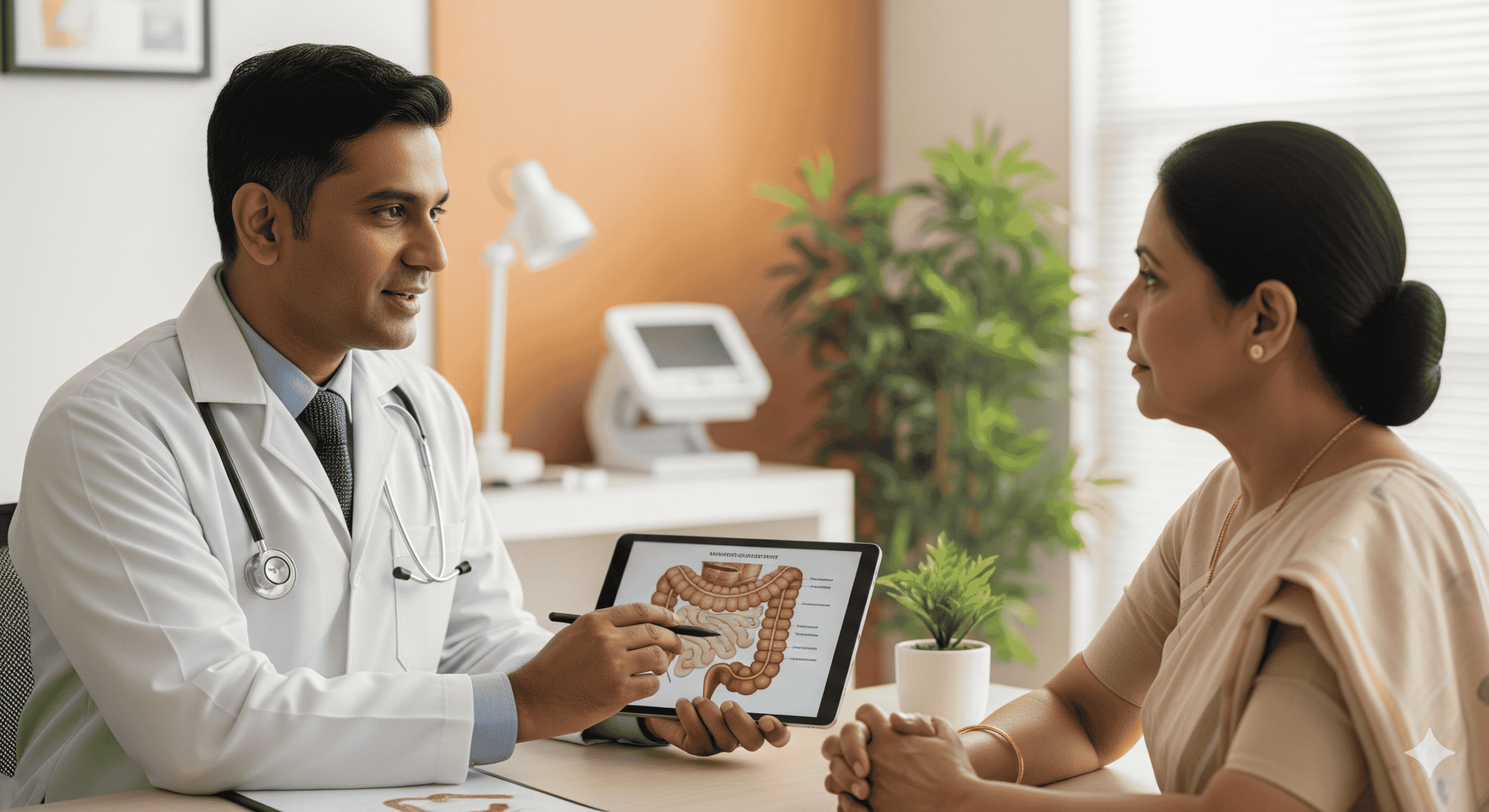
Hernias: Types, Symptoms, Causes, and Treatment Options
Hernias differ in form and behavior, much like locks that each require their own key. The inguinal hernia is by far the most common, especially among men, and it occurs


Laparoscopic cholecystectomy (gallbladder removal), Laparoscopic appendectomy, Hernia repair (inguinal, umbilical, incisional), Fistula and fissure surgery, Piles (haemorrhoidectomy), Abscess drainage, Breast lump removal, Thyroidectomy, Gastrointestinal perforation repair, Diagnostic laparoscopy, Laparotomy, Intestinal obstruction surgery, Soft tissue mass excision
Gallstones, Appendicitis, Hernias, Haemorrhoids, Anal fissures and fistulas, Breast lumps and cysts, Thyroid nodules, Infections or abscesses, Gastrointestinal bleeding, Abdominal trauma, Perforations and obstructions, Lipomas, Skin and soft tissue swellings
Abdominal ultrasound, CT scan of abdomen and pelvis, Upper GI endoscopy, Colonoscopy, Fine needle aspiration (FNAC), Biopsy of lumps, Blood investigations, Digital X-ray, ECG and fitness evaluations, Anaesthesia workups, Laparoscopic camera systems with high-definition imaging

MedOne Hospitals, Kompally, stands out for its commitment to high-quality surgical care. Our operation theatres are equipped with the latest technology for both laparoscopic and open surgeries. For those seeking a reliable Laparoscopic Hospital near me, MedOne is the answer. Our multidisciplinary approach ensures patients benefit from collaborative input from various experts, promoting quicker healing and making your surgical journey smooth and effective.

Hernias differ in form and behavior, much like locks that each require their own key. The inguinal hernia is by far the most common, especially among men, and it occurs

The large intestine, contrary to its name, is actually much smaller in length when compared to the small intestine, which can span many feet in length. The large intestine is
General surgery involves traditional open procedures, while laparoscopic (keyhole) surgery uses small cuts and a camera, offering faster recovery and less post-operative pain.
Laparoscopic surgery is safe for most patients. However, some conditions may require open surgery. Your surgeon at MedOne Hospitals will recommend the best option based on your case.
It results in smaller incisions, quicker healing, less pain, lower infection risk, and minimal hospital stay. It’s often preferred for gallbladder removal, appendicitis, and hernia repair.
You may need to fast for a few hours before surgery. Routine blood tests, scans, and a pre-anaesthesia check-up will also be done to ensure safety during the procedure.
Mild discomfort is common, especially after open surgery. However, with laparoscopic procedures and pain control methods, most patients feel better quickly.
It depends on the type of surgery. Laparoscopic procedures may allow discharge within 24–48 hours. Open surgeries might require a slightly longer stay.
MedOne Hospitals, Kompally offers expert surgeons, modern technology, and personalised care. Our focus on patient safety, advanced techniques, and clear communication sets us apart.